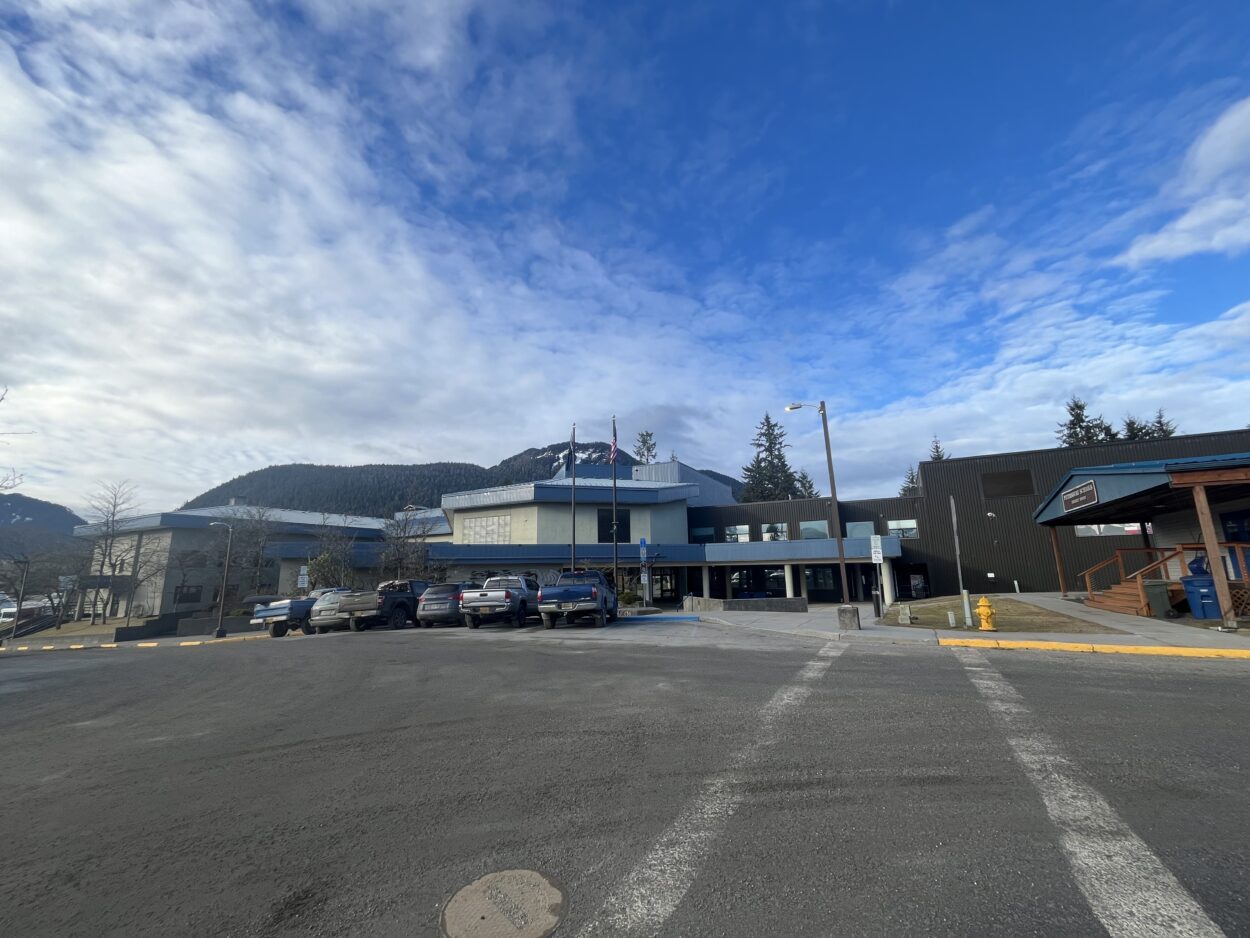
Petersburg’s teachers union is negotiating a new contract with the school district. Both the union and the district say years of flat education funding from the state is making the negotiations more complicated this year. And, as KFSK’s Hannah Flor reports, they’re worried about the effects that lack of funding will have on the quality of education the district is able to provide.
The Petersburg School District negotiates new contracts with its teachers once every three years. The last time the two groups agreed to a 1% increase per year. Alice Cumps is the president of the Associated Teachers of Petersburg.
“We didn’t know at that time that our cost of living expenses were going to go up, that inflation was going to be so high, but we were locked into that rate,” she said.
Now, Cumps said, salaries at the school district are lower than most across the state. Cumps won’t give specifics as to what teachers are asking for this time around, since they’re still actively in negotiations.
“We are really just asking for a fair wage increase, fair salary schedule,” she said.
Cumps said this year the negotiations are more complicated than usual because the school district has so little money to work with. She said that’s because of flat state education funding. The state’s base student allocation, which is essentially the funding for each student in a district, hasn’t increased since 2017.
She said the teachers’ union understands the position that the district is in.
“We do recognize that the district has limited funds,” she said.
Cumps said the union is concerned about the effects the lack of funding could have on the district.
“I think even regardless of whether or not we get a pay increase, we are worried that we will be looking at cutting programs,” she said. “So whether that means cutting teachers or cutting programs that our students are used to having in our communities, used to seeing around town, those are always questions that we’re going to be faced with when we don’t get the funding that we need.”
Cumps said she hopes that people in Petersburg will put pressure on state lawmakers to increase education funding.
“Call your legislatures, get the word out that it’s extremely important for us to be able to run our school the way we have been running it, which is a quality education for all of our students,” she said. “But we can’t continue that if we’re not going to get this funding.”
School Board President Sarah Holmgrain is working on the negotiations with the teachers union. She says the lack of funding from the state is a huge problem. She said if things don’t change, eventually the district will have to cut programs and teachers.
“Worst case scenario I see happening is you start cutting specific programs that aren’t required. So you can go down the list of what classes in the middle school in high school that aren’t required in order to graduate in the elementary school, and what are not required by state or federal law,” she said. “Right now we have class sizes anywhere from 15 to 20 kids. That could look very different when you have one teacher per grade instead of two.”
She said years of flat funding from the state have created these problems.
“A lot of these concerns could be solved if the legislature did their job and went around the Governor just said, ‘We got the votes. You can say what you want, but this is what our districts need, despite what your personal vendetta is against public education,’” she said.
Last year, the House and Senate agreed to one-time funding equivalent to a $680 per-student increase. Gov. Mike Dunleavy vetoed half of that increase. This year, advocates for local school districts are asking for an increase of more than $1,400.
Members of the state House and Senate are working out the details of a wide-ranging education bill. The bill in the House would increase a key part of the state’s education funding formula – the base student allocation, essentially the funding for each student in a district – by $300. Senators have said they want substantially more.
The district also receives funding from the Petersburg Borough. The state caps the amount each municipality is allowed to give a school district. The Borough has never funded the school district to the cap. Last year was the first time in more than 20 years that the school district asked for, and received, a funding increase from the Petersburg Borough Assembly. The Borough gave the district three million dollars, up from 1.8 in previous years. Holmgrain says that this year the district plans to ask for the current maximum amount of 3.4 million dollars.
“I think they’ve been really good about going over our budget and seeing how little wiggle room we have,” she said. “I don’t doubt for a second that there’ll be lots of questions, because that’s their job, their job is to make sure that they’re being good stewards of the money that they’re turning around and giving to the school district.”
Holmgrain said that while education funding problems are complicated, the district’s negotiations with the Associated Teachers of Petersburg have not been contentious.
“We both have the same goal in mind. So I think I’m not too worried about that at all,” she said.
The Petersburg Borough Assembly and the Petersburg School Board have a school budget work session scheduled for February 29, 2024. There is no deadline for the teachers’ negotiation.










